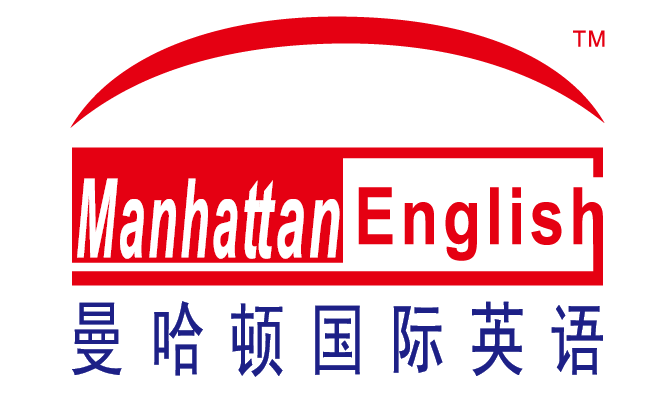



很多准备考试的同学错误地认为词汇上的得分就是只要多用一些看起来高大上的词汇就可以了。好的词汇固然重要,但不是全部,还有其他一些用词上的小心机需要谨记。
今天就带大家来感受一下雅思写作用词的其中一个小心机:大小词。
让我们来看一篇范文:
It is important for children to learn the difference between right and wrong at an early age. Punishment is necessary to help them learn this distinction. To what extent do you agree or disagree with this opinion? What sort of punishment should parents and teachers be allowed to use to teach good behavior to children?
One important stage in a child’s growth is certainly the development of a conscience, which is linked to the ability to tell right from wrong. This skill comes with time and good parenting, and my conviction is that punishment does not have much of a role to play in this. Therefore I have to disagree almost entirely with the given statement.
To some extent the question depends on the age of the child. To punish a very young child is both wrong and foolish, as an infant will not understand what is happening or why he or she is being punished. Once the age of reason is reached however, a child can be rewarded for good behavior and discouraged from bad. This kind but firm approach will achieve more than harsh punishments, which might entail many negative consequences unintended by the parents.
To help a child learn the difference between right and wrong, teachers and parents should firstly provide good role modelling in their own behavior. After that, if sanctions are needed, the punishment should not be of a physical nature, as that merely sends the message that it is acceptable for larger people to hit smaller ones – an outcome which may well result in the child starting to bully others. Nor should the punishment be in any way cruel.
Rather, teachers and parents can use a variety of methods to discipline their young charges, such as detention, withdrawal of privileges, and time-out. Making the punishment fit the crime as a useful notion, which would see children being made to pick up rubbish they have dropped, clean up graffiti they have drawn, or apologise to someone they have hurt. In these days responsibility is developed in the child, which leads to much better future behavior than does punishment.
这篇文章是教育类的一个话题,其中的关键词就是learn the difference between right and wrong,punishment等,这类大词在写文章过程中往往需要找到同义词进行替换,增加我们表达的多样性,避免重复率太高。
文章除了使用sanction等近义词之外,还巧妙地用一些比较具体的小词来对punishment做了替换,如第三段中用physical nature, hit等来表达体罚,第四段用detention, withdrawal of privileges, time-out等表达具体的惩罚形式,不仅词汇上多样化,也给出了具体的例子,比起全文都是空洞地只谈punishment一词要灵活很多。
对于difference between right and wrong这个比较复杂关键词的替换,很多学生都会觉得无从下手,因为这更难找到一个词去概括,也很难用句子解释。文中使用到了good behavior,responsibility等同样是比较具体的词去指代“good”,同时用 bully, rubbish, graffiti, hurt等行为去具体化“bad”,同样用小词代替大词,达到了词汇的多样化。
让我们再来看看一个题目吧:
Q
Countries are becoming more and more similar because people are able to buy the same products anywhere in the world.
Do you think this is a positive or negative development?
针对这样一道文化和经济社会以及全球化的题目,核心的一些名词可能会涉及产品、文化等,而对于像 product, culture这样抽象的“大词”,虽然很常见,但往往是很难找到近义词来替换的,并且也很难用从句的形式来进一步解释;与此同时,如果重复使用的话,会显得比较单调。
那考官是怎么“变变变”的呢?
咱们先来看考官的范文:
It is said that countries are becoming similar to each other because of the global spread of the same products, which are now available for purchase almost anywhere. I strongly believe that this modern development is largely detrimental to culture and traditions worldwide.
A country’s history, language and ethos are all inextricably bound up in its manufactured artefacts. If the relentless advance of international brands into every corner of the world continues, these bland packages might one day completely oust the traditional objects of a nation, which would be a loss of richness and diversity in the world, as well as the sad disappearance of the manifestations of a place’s character. What would a Japanese tea ceremony be without its specially crafted teapot, or a Fijian kava ritual without its bowl made from a certain type of tree bark?
Let us not forget either that traditional products, whether these be medicines, cosmetics, toys, clothes, utensils or food, provide employment for local people. The spread of multinational products can often bring in its wake a loss of jobs, as people turn to buying the new brand, perhaps thinking it more glamorous than the one they are used to. This eventually puts old-school craftspeople out of work.
Finally, tourism numbers may also be affected, as travellers become disillusioned with finding every place just the same as the one they visited previously. To see the same products in shops the world over is boring, and does not impel visitors to open their wallets in the same way that trinkets or souvenirs unique to the particular area do.
Some may argue that all people are entitled to have access to the same products, but I say that local objects suit local conditions best, and that faceless uniformity worldwide is an unwelcome and dreary prospect.
考官在这里就用了一个列举的小技巧,用多个具体的“小词”来替换掉这些抽象的“大词”。
比如文章在开头段中提到这样的发展是对culture 和 traditions 有害的,而在主体段的第一句中作者将文化和商品联系起来的时候,用的词就是history, language and ethos(道德观),这三者是文化的三方面,三个名词的并列又基本足以代表文化。
与之类似的,在文章的第三段和第四段中,作者又用了medicines, cosmetics(化妆品), toys, clothes, utensils(器皿) or food这一系列的词和trinkets(小装饰物) or souvenirs来代表与 product 相关的概念。这样的用法除了避免重复、使词汇更加丰富多样之外,还可以针对要表达的论点给出更准确的例证,比如medicines, cosmetics, toys, clothes, utensils or food涵盖生活的各个方面,体现出对各行各业就业的影响;而trinkets or souvenirs则又与旅游紧密相关。
更多学习专题